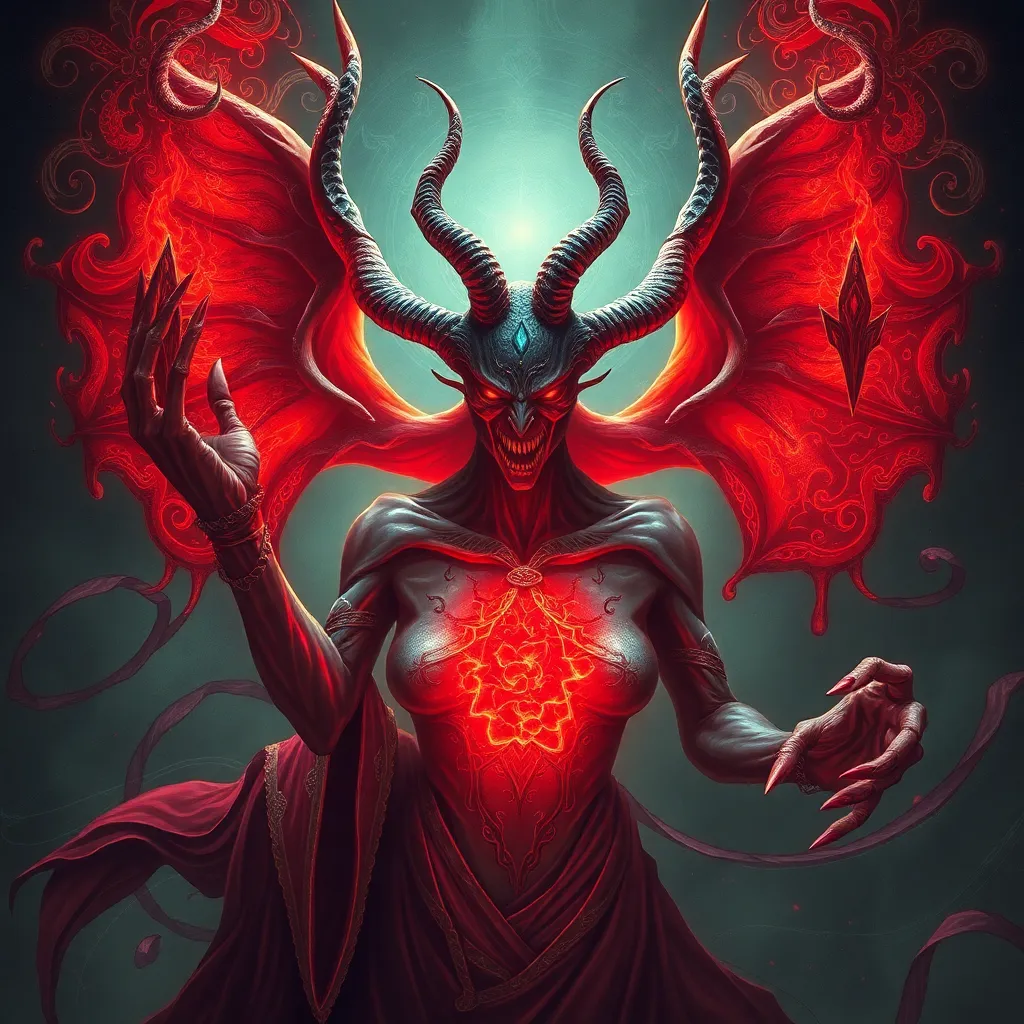The Empusa’s Deadly Embrace: Exploring the Demon’s Relationship to Disease and Misfortune
I. Introduction
The Empusa, a fearsome creature from ancient Greek mythology, is often depicted as a seductive demon that preys on the living. Known for her shape-shifting abilities and association with death, the Empusa embodies numerous themes, including disease and misfortune. Throughout history, the figure of the Empusa has evolved, but her connection to illness and calamity remains prominent.
This article aims to explore the historical context of the Empusa, her symbolism in relation to disease and misfortune, the rituals and beliefs surrounding her, and her portrayal in literature and art. By examining these aspects, we uncover the enduring legacy of the Empusa and her relevance in contemporary culture.
II. Historical Context of the Empusa
A. Origins in ancient Greek mythology
The Empusa is primarily known from the writings of ancient Greek playwrights and philosophers. She is often described as a daughter of Hecate, the goddess of magic and witchcraft. As a demon, the Empusa is said to possess the ability to transform into various forms, often taking the guise of beautiful women to lure unsuspecting victims.
B. Evolution of the Empusa’s character through the ages
Over time, the Empusa’s character has evolved from a singular demon to a more complex figure within folklore. In some accounts, she is portrayed as a vengeful spirit, while in others, she is seen as a more neutral entity representing the inevitability of death and disease.
C. Cultural interpretations of the Empusa across different societies
The Empusa has not only been confined to Greek mythology; her likeness can be found in various cultures. In some interpretations, she parallels figures like the Lamia or the succubus, embodying the fears and anxieties of different societies regarding sexuality, mortality, and misfortune.
III. The Empusa as a Symbol of Disease
A. The connection between the Empusa and various ailments
The Empusa has long been associated with various diseases and epidemics. Ancient texts often linked her presence to outbreaks, suggesting that her malevolent force could cause illness. This belief reflected the way people sought explanations for diseases in a time when scientific understanding was limited.
B. Analysis of historical accounts linking the Empusa to epidemics
Historical accounts often cite the Empusa as a harbinger of doom during epidemics. For instance, during the Plague of Athens in the 5th century BCE, many believed that the Empusa was responsible for the suffering and death that plagued the city. Such interpretations reveal the demon’s role in the collective psyche of ancient civilizations.
C. Case studies: Famous outbreaks and the role of the Empusa in folklore
- The Black Death: During the 14th century, many blamed supernatural entities like the Empusa for the rampant spread of the plague.
- Cholera Epidemics: In the 19th century, some communities invoked the Empusa in rituals to ward off the disease.
- Spanish Flu of 1918: Folklore revived the Empusa as a metaphor for the unseen enemy that caused widespread illness.
IV. Misfortune and the Empusa’s Influence
A. The demon’s association with bad luck and misfortune
In addition to disease, the Empusa is often linked to misfortune. Many cultures have narratives that illustrate how the presence of the Empusa can lead to bad luck, misfortune, and even death.
B. Folktales and narratives illustrating the Empusa’s impact on individuals
Numerous folktales depict the Empusa as a figure that brings calamity to those who cross her path. These stories serve as cautionary tales, warning against greed, lust, and other vices that could attract her attention.
C. Psychological implications of invoking the Empusa in times of distress
In times of crisis, the invocation of the Empusa can serve as a psychological mechanism for coping with misfortune. By attributing their struggles to a demon, individuals can externalize their fears and anxieties, making them easier to confront.
V. Rituals and Beliefs Surrounding the Empusa
A. Ancient rituals aimed at appeasing the Empusa
To mitigate the influence of the Empusa, ancient cultures engaged in various rituals. These often included offerings, prayers, and sacrifices intended to appease her and ward off her malevolent influence.
B. Modern interpretations and practices related to the demon
In contemporary spirituality, some practitioners still engage in rituals inspired by ancient beliefs surrounding the Empusa. These practices may include meditation, visualization, or even artistic expressions meant to honor or confront her essence.
C. The role of the Empusa in contemporary spiritual beliefs
The Empusa has found a place within modern spiritual practices, often viewed as a symbol of transformation and the duality of life and death. Her influence persists, reminding individuals of the constant interplay between wellness and illness, fortune and misfortune.
VI. The Empusa in Literature and Art
A. Depictions of the Empusa in classical literature
The Empusa appears in various classical works, often serving as a metaphor for temptation and danger. Writers like Herodotus and Aristophanes have referenced her in their narratives, solidifying her role in the literary canon.
B. Influence on modern literature and popular culture
Today, the Empusa continues to inspire authors and creators. Her character manifests in modern horror fiction, films, and video games, where she embodies the archetype of the seductress with deadly intentions.
C. Visual representations of the Empusa in art
Artists throughout history have depicted the Empusa in various forms, often emphasizing her duality. From classical sculptures to contemporary paintings, the visual representation of the Empusa serves to evoke both fear and fascination.
VII. Modern Interpretations and Psychological Perspectives
A. The Empusa as a metaphor for modern diseases and misfortunes
In modern contexts, the Empusa can be seen as a metaphor for the diseases and misfortunes that plague society today, from chronic illness to societal turmoil. Her figure represents the fears that continue to haunt humanity.
B. Psychological analysis of the fear and fascination surrounding the Empusa
The psychological allure of the Empusa lies in her embodiment of the unknown. She represents the fears surrounding mortality and illness, drawing individuals to explore their own anxieties through her lens.
C. The relevance of the Empusa in today’s context (e.g., pandemics, mental health)
As society grapples with global pandemics and mental health crises, the Empusa serves as a reminder of the ever-present nature of disease and misfortune. Her legacy encourages reflection on the human experience and our relationship with these enduring themes.
VIII. Conclusion
A. Summary of the Empusa’s significance in relation to disease and misfortune
The Empusa’s character serves as a multifaceted symbol that intertwines themes of disease and misfortune. Her historical and cultural significance highlights the human tendency to seek understanding and meaning in the face of suffering.
B. Reflection on the enduring legacy of the Empusa in contemporary culture
As a figure that transcends time and cultural boundaries, the Empusa’s legacy continues to resonate in contemporary culture. Her representation in literature, art, and spiritual practices underscores the ongoing fascination with her character.
C. Final thoughts on the importance of understanding mythological figures in historical and modern contexts
Understanding mythological figures like the Empusa allows us to explore the complexities of human fears, beliefs, and the cultural narratives that shape our understanding of disease and misfortune. By delving into these ancient stories, we gain insight into the timeless nature of human struggles and the ways we cope with the challenges of existence.



